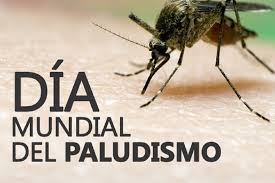

Malaria, also known as Malaria, is an acute febrile disease transmitted to humans through the bite of female mosquitoes, specifically Anopheles when it is infected. This disease is caused by parasites of the genus Plasmodium. Although there are several parasites, the most dangerous are 2 of them called Falciparum and P vivax.
The symptoms appear after 10 to 15 of the bite of the mosquito carrying the disease. Among the first symptoms we have fever, headache and chills; although these usually occur in a mild way and then it gets worse causing frequent multiorganic affectations. In children, when the disease is severe, may have anemia, breathing difficulties due to metabolic asidosis or cerebral malaria.
There are 30 mosquitoes of the Anopheles species that are important vectors of malaria and they sting between dusk and dawn. Female Anopheles mosquitoes lay their eggs in the water. After the eggs hatch, the larvae develop until they reach the adult mosquito status. Female mosquitoes seek to feed on blood to nourish their eggs.
There are places where the mosquito has longer life, which allows the parasite to develop completely, as there are also mosquitoes that create a preference for biting the human being and not other animals and creates more possibilities to see cases of malaria in these regions . Also the climatic conditions are a determining factor, as the places with rainy seasons that allow a greater intensity of transmission. Also the immunity created by the human, influences a lot, because in the areas where there is usually more exposure the adults manage to create a partial immunity. That is why it is more frequent in these areas to see the most serious cases in small children or travelers.
The best way to prevent malaria is by attacking the vector, which in this case is the mosquito. The use of insecticides and mosquito nets are the main methods used today, although in some areas mosquitoes have created some resistance to insecticides. There are also antimalarial drugs especially for the most exposed people such as travelers and children.
If it is diagnosed early and treated, its most serious effects are reduced considerably and it helps to prevent transmission. And the best treatment known to date is the combination treatment with artemisinin. It is advisable to have a clear diagnosis before applying the treatment. Although it is known that recurrently creates resistance to antimalarials, is continuously monitored when this happens to solve the situation.
It is essential to maintain an effective surveillance where the disease is found until it is eliminated. In the Global Technical Strategy for Malaria 2016-2030, it is recommended that countries convert surveillance into a basic intervention. If solid surveillance systems are available, it is possible to apply the program measures optimally to:
- promote the investment of national and international agents in a way that corresponds to the burden of malaria in each country or zone within the countries.
- allocate resources to the populations that need them most and to the most effective interventions to achieve maximum impact in terms of public health.
- periodically assess whether the plans are progressing as expected and, if necessary, expand the scope or type of interventions that are carried out.
- explain the impact of the funding received and allow the population, its elected representatives and donors to determine if it is profitable.
- evaluate if the objectives of the program have been achieved, paying attention to the interventions that have worked to improve the effectiveness and efficiency of the programs.
Surveillance systems need to be urgently strengthened to respond promptly and effectively to the disease in the regions where it is endemic, to prevent outbreaks and epidemics, to monitor progress and to ensure that governments and the international community assume responsibility of the fight against malaria.
Thank you very much for reading and appreciating.

